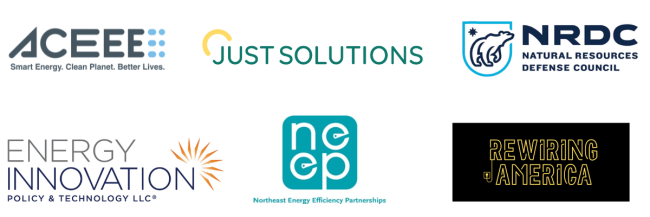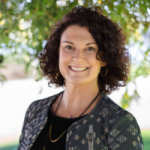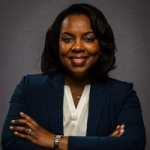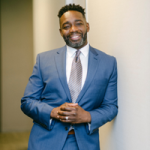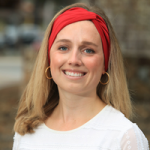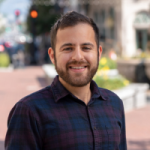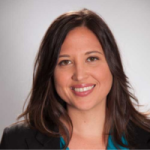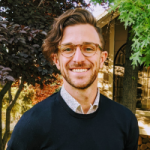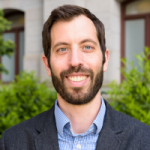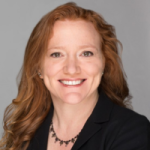OCTOBER 26 - NOVEMBER 16, 2023 | 12:00PM - 1:00PM EST
State energy offices (SEOs) are moving fast to launch $8.8 billion in rebates funded by the Inflation Reduction Act (IRA) for home energy efficiency and electrification to save families money, increase comfort, and reduce pollution. Those rebate programs are especially important for low-to-moderate income households and multifamily buildings—two underserved market segments that stand to benefit the most from home energy upgrades.
Join us for a weekly, four-part webinar series as we bring together leading experts from around the country to support SEOs and stakeholders in quickly getting transformational funding to those who need it most. During these sessions, our panelists will share best practices for engaging communities in program design, laying the groundwork for a robust workforce to implement upgrades, ensuring comprehensive whole home approaches, and seamlessly integrating with existing efficiency programs.
Register today to get a wealth of recommendations to ease home energy rebate implementation, ensure public involvement and support, and deliver benefits for families, workers, and communities.
Webinar #1 (October 26): Program Design Principles and Elevating Equity
Webinar #2 (November 2): Investing in a Community-Based Efficiency Workforce with the IRA
Webinar #3 (November 9):The Crucial Partnership with Regulators: What Should SEOs Ask of PUC/PSCs
Webinar #4 (November 16): How to Leverage IRA Programs to Offer Whole-Home Solutions
Register for the Webinar Series
Webinar #1 (October 26): Program Design Principles and Elevating Equity
Our webinar series kickoff will feature rebate program design principles and best practices for elevating equity and multifamily solutions. Our expert speakers will highlight key considerations for both SEOs and their implementation partners, including utilizing data to set program objectives, offering hands-on support for participants and contractors, ensuring durable retrofit market momentum, and facilitating stakeholder involvement to inform solutions. Equity priorities will be a common thread throughout the webinar, including guidance for serving affordable multifamily housing.
Don’t miss this opportunity to learn about innovative program design and solutions that connect with disadvantaged populations to maximize rebate program impacts in your state.
Speakers:
Sara Baldwin, Senior Director, Electrification, Energy Innovation
Sara leads Energy Innovation’s electrification policy practice area to advance economy-wide decarbonization through the strategic electrification of buildings, transportation, and industry. She and her team provide policy analysis, thought leadership, and original research to support policymakers and decision-makers at the federal, state, and local levels. Sara is a member of GridLab’s advisory board, host of Energy Innovation’s Electrify This! Podcast, and former host of the Grid Geeks podcast. She earned her Honors B.S. in environmental studies and a B.A. in Spanish from the University of Utah, graduating Phi Beta Kappa.
Srinidhi Sampath Kumar, Manager, Carbon-Free Buildings, RMI
Srinidhi oversees RMI’s building decarbonization policy campaigns in the West and Interior West. She spearheads RMI’s growing body of affordable housing policy work and equitable IRA implementation at the federal and state levels. She holds a BA in Economics and a Master’s in City Planning from UC Berkley, currently serves on the market advisory board of USGBC Northern California, and as a stewardship council member for the Network for Energy, Water, and Health in Affordable Buildings.
Sylvia Chi, Senior Policy Analyst, Just Solutions Collective
Sylvia’s role is to further policy innovation, foster peer-learning, and help to build greater policy capacity for BIPOC-Frontline groups. Sylvia is an attorney and climate/environmental justice policy expert based in Oakland. She previously served as Policy Director for Asian Pacific Environmental Network, and before that, was Independent Counsel with Verdant Law, advising on chemical regulatory and green marketing compliance. She earned her J.D. from the University of Maryland School of Law and A.B. from Dartmouth College.
Register for the Webinar Series
Webinar #2 (November 2): Investing in a Community-Based Efficiency Workforce with the IRA
In our second webinar of the series, we will dive into how states can leverage new funding from the U.S. Department of Energy to train, test, and certify energy efficiency and electrification contractors. This funding, called the IRA Contractor Training Grants, can assist in establishing and growing a statewide efficiency workforce. Our speakers will provide an overview of the intent and requirements for the funding, as well as on-the-ground examples of programs states can implement, no matter their current workforce status.
This is a great opportunity to learn how states can leverage this funding to invest in and lay the groundwork for a well-trained, equitable, statewide energy efficiency workforce.
Speakers:
Waltasia Mansano, Manager, PSE&G Clean Energy Jobs Program
Waltasia has acquired a broad background that spans program implementation, cybersecurity, strategic planning, and balanced scorecard development. In her current role, she is responsible for leading a team with the objective of generating economic opportunities for up to 2,000 unemployed, under-employed, low/middle-income New Jersey residents; creating and expanding opportunities for diverse suppliers in delivery of energy efficiency programs; and working in support of the NJ Council on Green Economy.
A Cum Laude graduate of Seton Hall University with a Bachelor of Science in Management Information Systems, Waltasia also holds a Masters' Degree from Stevens Institute of Technology in Information Systems.
Paul Douglas, President, JPI Group
Paul is at the forefront of addressing the critical workforce shortage in the energy sector. Under his leadership, JPI collaborates with states, utilities, implementors, and minority-owned firms to deliver trailblazing workforce solutions. With two decades of expertise in HR, equity initiatives, and technology, the team at JPI has crafted a comprehensive workforce model tailored to meet the industry's evolving demands. Anchored in a deep commitment to diversity and equity, JPI's mission not only bridges the wealth gap but also champions higher-paying opportunities and propels small-minority businesses to new heights.
Mary MacPherson, Program Manager, Department of Energy’s (DOE) Office of State and Community Energy Programs
Mary joined DOE in 2022 and manages several energy efficiency workforce development programs for states, nonprofits, institutions of higher education, and their partners. Previously, Mary worked at the American Council for an Energy-Efficient Economy for almost a decade. In her former role, she conducted research and technical assistance on inclusive workforce development programs, rural energy efficiency, and state efficiency policies. She has a Bachelor of Science in Public Policy from the Georgia Institute of Technology.
Skip Wiltshire-Gordon, Manager, Government Affairs, AnnDyl
Skip focuses on federal legislative advocacy, appropriations, policy research, and policy tracking. Prior to joining AnnDyl, Skip worked on Advocacy & Policy at the U.S. Green Building Council (USGBC), focused on energy efficiency, resilience, state and federal climate goals, and green infrastructure. He also interned in the DC offices of Congresswoman Jan Schakowsky (D-IL-09) and Congressman Mike Quigley (D-IL-05). Skip also has experience conducting podcast interviews with notable figures such as former Ebola Czar and White House Chief of Staff Ron Klain, former senior advisor to VP Harris Symone Sanders, and documentarian Lynn Novick.
Skip holds a Bachelor’s degree in Government and History from Claremont McKenna College.
Register for the Webinar Series
Webinar #3 (November 9): The Crucial Partnership with Regulators: What Should SEOs Ask of PUC/PSCs
Our third webinar in the series will answer questions that could make the difference between a program that decarbonizes a limited number of homes and one that decarbonizes homes and transforms the entire building and home appliance market in your state.
We will hear from a cutting-edge program implementer about the key elements that allow for leveraging of multiple funding streams and still ensure seamless delivery to customers. Regulatory experts will then share actionable recommendations for how to make this best practice scenario a reality in your state.
This is a perfect opportunity to learn how a lasting, cooperative partnership between the state energy office and utility regulator is an essential tool for maximizing benefits from the IRA.
Speakers:
Peter Florin, Senior Manager, Energy Solutions
Peter leads the implementation of the TECH Clean California initiative and other regional HP initiatives through BayREN and Central Coast Community Energy. Previously he has held roles on distributor HVAC incentive programs and commercial demand response initiatives.
Lacey Tan, Manager, RMI’s Carbon-Free Buildings Program
Lacey has over a decade of experience in advancing clean energy and climate policy. Before joining RMI, Lacey worked closely with utilities, regional energy networks, and community choice aggregators in California designing and implementing energy-efficiency programs that addressed state, regional, and local climate goals. She led technical and engineering aspects of efficiency programs and policies, including developing energy use and demand savings estimates; energy modeling; codes and standards; evaluation, measurement, and verification; and emerging technologies.
Erin Cosgrove, Senior Manager, Policy and Programs, Northeast Energy Efficiency Partnerships
Erin works collaboratively with the entire organization to assist communities, states, federal agencies, utilities, NGOs and industry to accelerate state and local government adoption of equitable and impactful building decarbonization policies, programs, and best practices across the Northeast and Mid-Atlantic region. She joined NEEP in February 2021 as Public Policy Manager. Prior to joining NEEP, Erin worked in the energy efficiency and environmental policy space as the Director of Regulatory Affairs at the Energy Efficiency Alliance working on energy efficiency policy in New Jersey and Pennsylvania.
Nate Kinsey, Vice President of External Affairs, UtilityAPI
Nate works to foster strategic partnerships and collaborates with industry stakeholders to drive the adoption of data access solutions for all types of clean energy companies, organizations, and utilities.
Before joining UtilityAPI, Nate worked throughout the building energy efficiency, demand flexibility, and electrification sectors. He brings a wealth of experience and painful memories of how important access to customer utility data is to designing programs, implementing projects, and decarbonizing communities at scale.
Register for the Webinar Series
Webinar #4 (November 16): How to Leverage IRA Programs to Offer Whole-Home Solutions
We will wrap up this webinar series by highlighting ways that SEOs can harmonize IRA rebates with other programs to offer whole-home solutions.
Many people, especially those living in low-income households or disadvantaged communities, are in need of more than just one appliance upgrade. States can better meet these families' needs if they can effectively engage with such households and communities to find strategies that offer multiple benefits at once, and help residents afford, navigate and sequence their needed improvements.
Come hear about what SEOs and implementers can do to meet households' whole-house needs!
Speakers:
Cici Vu, Associate Director, Energy & Climate Equity, DNV
Cici supports clients with building equity into their services and programs. She brings 10 years of experience designing and implementing equitable and inclusive processes for local, state, and federal agencies, working with programs such as public transportation networks, government sustainability strategies, and conservation scholarship programs. She leads DNV’s equitable and inclusive community engagement efforts to help identify disadvantaged populations and better understand and serve their unique needs. She has extensive experience facilitating equitable and inclusive processes for complex environmental, social and racial conflicts and large-scale collaborative programs involving government agencies and philanthropic entities.
Alon Abramson, Director of Residential Programs, Philadelphia Energy Authority
Alon oversees Solarize Philly, the nation's largest solarize program to help all Philadelphians go solar, as well as Built to Last, an initiative to deliver holistic home improvements to low-income homeowners by layering together existing improvement, health, and energy efficiency programs. Alon's work is fully aligned with the Philadelphia Energy Authority's mission to leverage energy as a tool for real social impact by improving the environment, reducing utility costs, and creating jobs.
Kara Saul Rinaldi, President and CEO, AnnDyl Policy Group
With over twenty-five years of experience in advocacy strategy, lobbying and media relations, Kara is a leading energy and climate policy expert. She has directed national policy, communications, and grassroots campaigns aimed at the Administration and Congress on tax, appropriations, and authorization issues for national and international corporations and non-profit organizations. Kara has testified before Congressional and state legislative committees, led delegations to the UNFCCC climate negotiations, and authored numerous papers on energy efficiency, climate change, and smart technology. Prior to founding AnnDyl, Kara worked on climate and energy policy in the for-profit and non-profit sectors after beginning her career as a legislative staffer on Capitol Hill. Kara holds a master’s degree from the London School of Economics and a bachelor’s degree from the University of California, San Diego.
